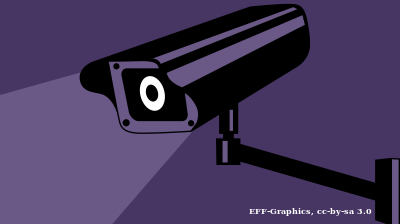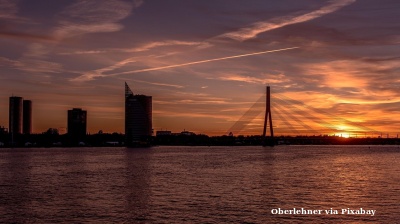Russian officials are poised to try to shut off the Virtual Private Networks (VPNs) starting in March, according to Yekaterina Mizulina, the head of the Kremlin-supported Safe Internet League. These are widely used to dodge restrictions on access to international pages on the internet as the Kremlin intensifies its efforts to control the content its citizens have access to.
Mizulina told a meeting of school children that the government has been tightening its access to Western social media and independent news outlets in the wake of the Ukraine invasion.
Mizulina described VPNs, particularly free ones, as a "total portal into hell," stressing the perceived security risks they pose to users' devices. She confirmed that the government is "most likely" to proceed with the VPN ban on March 1. However, she noted the technical challenges in enforcing a complete ban, indicating that the focus would be on curtailing the most widely used VPN services.
The move is the latest in a long-standing effort by the Kremlin to take better control of the internet as part of the rising repression of the Putin regime.
Russia enjoyed a heyday of information freedom in the Yeltsin era when privately owned stations like NTV were launched and brought unvarnished reporting to the airwaves. At the same time, new newspapers such as Russian Telegraph, Russian Newsweek and Vedomosti – a joint venture between the Moscow Times’s publisher Independent Media, the Financial Times and the Wall Street Journal – were launched along with a plethora of news and other information sites such as TV Dozhd (TV Rain).
But after Putin took over there has been a long slow campaign of regaining control over the bandwidths of alternative news sources.
The TV stations have long since been returned to state control. The biggest privately owned station, STS, is an entertainment channel and told bne IntelliNews in off-the-record remarks a few years ago that it simply wouldn't broadcast political content, as “it’s not worth it.”
The first thing that Russian President Vladimir Putin did on taking office in 2000 was to drive oligarch Boris Berezovsky into the exile, who had taken control of ORT, now known as The First Channel, and throw Vladimir Gusinsky into jail, the founder of NTV, which was rapidly acquired by Gazprom Media.
The press was also under pressure but the first major broadside was the introduction of a 20% cap on foreign ownership of Russian media in October 2014 and that, among other things, forced the Financial Times and the Wall Street Journal to sell their shares in Vedomosti – a runaway success and the most respected newspaper in the country. It was taken over a year later by structures controlled by the Kremlin.
Getting control of the rest of the online media has not been so easy. Adopted in 2016, new Russian legislation (dubbed ‘Yarovaya law’ or ‘Big Brother law’) requires messenger apps and other “organisers of information distribution” to add additional coding to transmitted electronic messages so that the Federal Security Service (FSB) can decipher them.
In a hilarious bodged job, in 2018 the FSB tried to force Pavel Durov, the owner of a popular message service that benefits from uncrackable encryption, to hand over his security keys so the authorities could read everyone’s messages. He refused. The FSB tried to shut the service down. What followed was a game of cat and mouse, where Roskomnadzor, the agency responsible, tried to close down Telegram’s servers, only to be hopelessly outclassed by the Russian tech whiz kids, who hopped from server to server constantly one step ahead. At one point the only thing that Roskomnadzor managed to achieve was to shut down its own site, while Telegram continued to work perfectly.
In a brazen act of defiance a few days after the authorities tried to block the service, Durov sent a message to everyone on Telegram calling on them to throw paper aeroplanes (the company’s logo) out of their windows at the same time. Thousands of paper planes appeared falling like snow to the ground in the middle of April, 2018. A crowd appeared in central Moscow where more planes flew.
After two years of abject failure to enforce the ban on Telegram, the Duma finally caved in and passed a law to unban Telegram in the summer of 2020.
But the Kremlin has learnt a lot since then and the repression became overt after the return to Russia of opposition blogger and anti-corruption activist Alexei Navalny in January 2021, who had been convalescing in Germany after he was poisoned by the state using the military-grade poison Novichok.
With the Kremlin’s human rights record now in tatters, the gloves came off and opposition media were simply shuttered, their business models wrecked and their staff either arrested or driven into exile. Those outlets that soldier on are now required to carry “foreign agent” warning notices in bold caps at the top of every article and face constant harassment.
Nevertheless, unlike China where the state has total control over online content, Russia’s internet remains relatively free, with many outlets having simply moved to countries such as Latvia and available to the tech savvy Russian population that are adroit in the use of dodges like VPNs.
Roskomnadzor’s technical capabilities have improved a lot since the Telegram fiasco. It has invested heavily in new technology, such as traffic filtration technology named Deep Packet Inspection, a lot of it supplied by US firms, and now seems to have gained the ability to shut off services like Telegram at will, which it has used at recent protests such as those recently in Bashkortostan.
Clearly the Kremlin was watching the mass demonstrations in Minsk in the summer of 2020 following Belarus’ falsified presidential elections, where the Nexta Telegram channel played a crucial role in organising an otherwise leaderless protest movement.
The authorities limited access to the messenger apps Telegram and WhatsApp during recent unrest in Bashkortostan; users in Yakutia, which experienced protests over the murder of a local man, also reported problems with accessing the two messaging apps, as did residents of several other Far Eastern regions a week later. On January 24, messenger services stopped working in two regions of the Far Eastern District of Russia – Khabarovsk region and Yakutia, where there was an interethnic conflict. There was no obvious reason for the shutdown in the Khabarovsk region.
Officially these disruptions were triggered by “work agreed with Roskomnadzor”, but residents believe that they are due to the protests.
In Yakutia the locals have made heavy use of online messaging to complain about the sorry state of the region and the messaging services outages, complaining en masse on social networks about the problems, The Bell reports. One of the few "platforms" on which they try to "reach out" to the local authorities is the page of the Head of the Republic Aysen Nikolaev on the Vkontakte Russian social network. Since Nikolaev writes nothing back, the disgruntled have been leaving their comments under all official posts available for comment
"Turn WhatsApp back on! All of our life goes through the Internet, work, study, shopping, etc, etc. What kind of discrimination is this? Or turn on wi-fi for everyone," indignant residents of Yakutian cities wrote, cited by The Bell.
LTE mobile internet was also briefly down in and around St Petersburg at the end of January, as well as in the Pskov and Novgorod Regions. Observers pointed out that this could be an attempt to thwart the flight of Ukrainian drones that rely on mobile networks after several Ukrainian attacks on oil and gas infrastructure in Russia’s northwest as part of the new drone war Ukraine has launched.
“It seems that the Russian authorities are actively preparing for mass protests and have already technically tested ways to make coordination between protesters through messengers more difficult,” The Bell said in a report.
The authorities are also trying to build internet infrastructure that is ringfenced from the rest of the world and the theoretical ability of the US to turn Russia’s internet off. A National Domain Name System (NDNS) was set up in 2019 in an attempt to isolate the Russian segment of the internet from access points linking it with the rest of the world – the “sovereignisation of RuNet” as the Cyrillic version of the internet is known. All big corporations are now required to connect their networks to the NDNS.
The system is not functional yet, but the country-wide internet outages of .ru sites in the last week of January have led some to speculate that the cause of the problems could have been a test of this system.
“The failure in the ".ru" domain zone had occurred because of a technical problem with the Domain Name System Security Extensions (DNSSEC) infrastructure, the .ru/rf domains co-ordination centre said earlier,” Roskomnadzor said on January 30.
Russian mobile operators quickly announced that there was nothing wrong with their mobile data network, and sites in foreign domain zones and large messengers also continued to work without issues.
Even if the problems have an innocent cause, the Russian government is clearly ramping up its efforts to control the country’s digital infrastructure, both as a repressive tool and as a means of protection against what the authorities perceive as foreign threats.
The Kremlin’s control over RuNet is far from complete, but it has made great strides in increasing its control, as its ability to shut down messaging services in the protests of recent months show.
The start of the war in Ukraine and exit of most of the big international players from Russia like Google have provided the Kremlin the opportunity to make more gains. The state has backed internet giant VK, the so-called Facebook of Russia, which has been taken over by Vladimir Kiriyenko, the son of former Prime Minister Sergei Kiriyenko and head of political projects in the presidential administration.
While other leading internet companies have been restructuring or downsizing their ambitions, VK has been on a shopping spree, snapping up multiple online companies in multiple niches, increasing the state's influence over the entire e-commerce ecosystem. And the group appears to be adopting a new strategy: focusing on growing its flagship social media platform as much as possible.
But the Kremlin is not hell bent on simply owning the internet. As bne IntelliNews reported, a deal to break up Yandex into its Russian and international business was announced on February 5. However, rather than just plant a friendly oligarch at the top of what was Europe’s most valuable tech company, the Kremlin has held back and left the control of Yandex largely in the hands of its existing management. While a dairy producer or brewer can be handed over to a Kremlin crony in a get-rich-quick scheme, that would be a death sentence for the large and sophisticated internet giant. The Kremlin also has ambitions to modernise its economy and understands the need for a flourishing and innovative tech company.
Tech

Is Kazakhstan building a digital utopia, or a China-style surveillance state?
Many Kazakhs will tell you that officials should limit their ambitions to fixing the internet speed. Others worry that the time for joking is over.

Romanian startup .lumen wins €11mn EU grant to develop autonomous delivery robots
Funds to back project aimed at developing a new generation of humanoid and quadruped robots capable of navigating pavements and crowded urban areas autonomously.

Latvian fintech Eleving Group raises €275mn in oversubscribed bond issue
Proceeds to be used to refinance €150mn in existing bonds and to expand Eleving's loan portfolio.

Roblox, Fortnite banned in Iraq over child safety concerns
Iraq's Ministry of Interior to ban PUBG, Fortnite and Roblox within next few months under 2013 law prohibiting games encouraging violence, citing threat to social security and waste of youth time.




